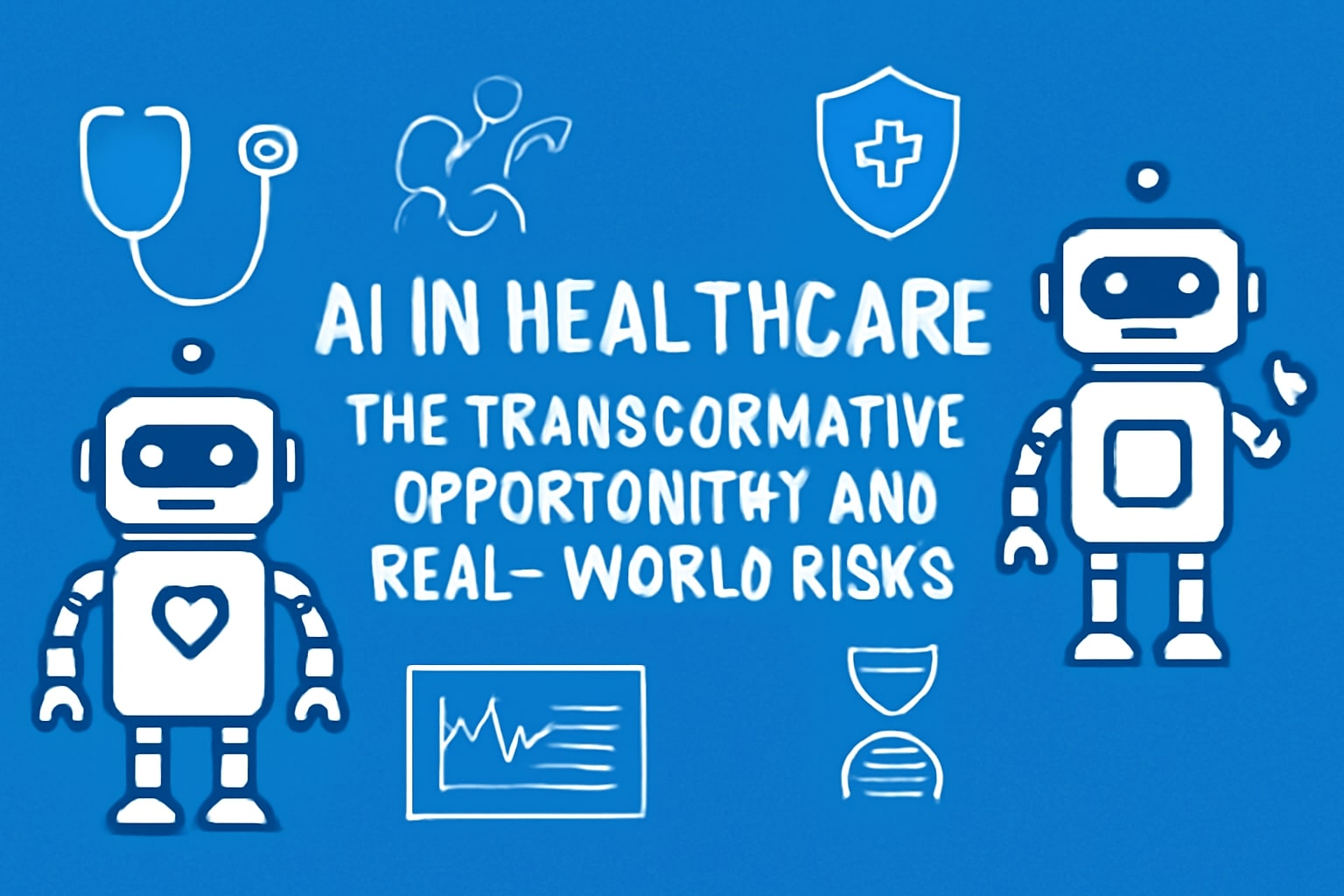Artificial Intelligence (AI) is poised to revolutionize healthcare, promising to improve patient outcomes, increase efficiency, and democratize access. However, integrating AI into such a high-stakes field comes with significant challenges and risks. This article explores the opportunities and perils of AI in healthcare, and what responsible adoption looks like in 2025.
The Opportunities: How AI is Transforming Medicine
1. Enhanced Diagnostics and Early Detection
AI algorithms, particularly in medical imaging, can analyze X-rays, MRIs, and CT scans with remarkable precision. In some cases, they even outperform human radiologists, leading to earlier and more accurate detection of diseases such as cancer.
2. Drug Discovery and Development
AI can process vast biological datasets to identify potential drug candidates, predict effectiveness, and even design new molecules. This dramatically reduces the time and cost (often billions of dollars and over a decade) of bringing new drugs to market. Companies like Insilico Medicine are already pioneering AI-driven drug discovery.
3. Personalized Medicine
By analyzing genetics, lifestyle, and medical history, AI enables doctors to tailor prevention strategies and treatments for individual patients. This represents a shift from one-size-fits-all care to true personalized medicine.
4. Administrative Automation
From scheduling and billing to insurance claims, AI can handle repetitive administrative tasks. This reduces operational costs and allows healthcare staff to spend more time on patient care.
5. Remote Monitoring and Virtual Health
AI-powered wearables and health apps are transforming chronic disease management. They provide continuous monitoring and alert patients and doctors to potential health issues before they escalate. For example, the American Heart Association highlights AI’s role in cardiovascular care.
The Risks and Challenges: What Keeps Experts Awake at Night
1. Data Privacy and Security
Healthcare data is highly sensitive. Training AI requires massive datasets, making them attractive targets for cyberattacks. Ensuring compliance with HIPAA and global data privacy laws is critical.
2. Algorithmic Bias and Health Disparities
If AI systems are trained on biased data, they may underperform for women, people of color, or underrepresented groups. This could deepen existing healthcare inequities instead of fixing them. Ethical AI design is essential.
3. The “Black Box” Problem
Some advanced AI systems provide outputs without clear reasoning. In medicine, both doctors and patients must understand the why behind a diagnosis or treatment recommendation. That’s why explainable AI is a growing field.
4. Accountability and Liability
Who is responsible if an AI system makes a harmful error—the doctor, hospital, or developer? Legal frameworks are still evolving, leaving accountability unclear.
5. Over-Reliance and Deskilling
Excessive reliance on AI could reduce doctors’ diagnostic skills over time. Maintaining human expertise is just as important as technological advancement.
The Path Forward: Responsible Integration
The future of AI in healthcare is not about replacing doctors—it’s about augmentation. A responsible system should ensure:
- AI handles data patterns: Identifying signals, trends, and predictions at scale.
- Humans provide context and empathy: Applying clinical judgment and offering compassionate care.
To fully realize the benefits, the healthcare sector must prioritize regulation, transparency, diverse datasets, and ongoing professional training. The potential to save lives and improve outcomes is enormous—but it must be pursued with ethics and patient well-being at the core.
